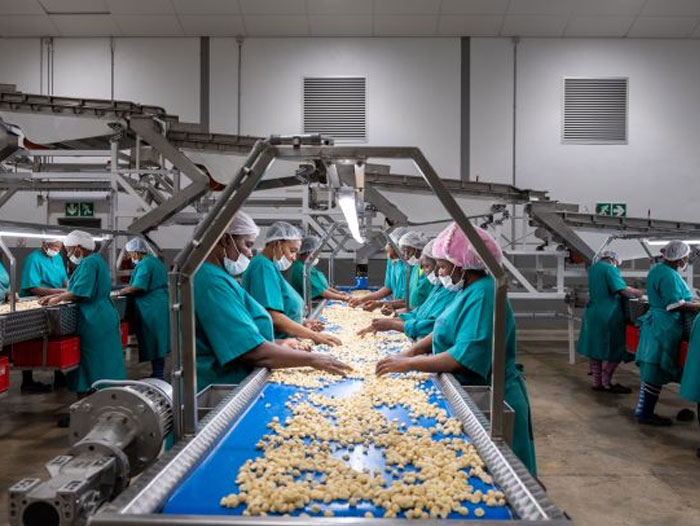Green Farms Nut Company Invests in Macadamia Food Safety With Leading Napasol Pasteurization Technology
February 19, 2020 | 3 min to read

GFNC today announces its multi-million Rand investment into foremost Napasol pasteurisation technology, to meet and surpass current and future food safety requirements in key export destinations around the world. This decision underscores the organisations ongoing commitment to deliver best in class quality product to its customers, as well as secure value for their supply base of producers and farmers.
According to the World Health Organisation (WHO), globalisation, urbanisation and changing consumer habits has resulted in a longer and increasingly complex global food supply chain. These challenges put greater responsibility on food producers and handlers to ensure food safety. The WHO urges building and maintaining focus on adequate food systems and infrastructures, like laboratories and legal frameworks, as well as multi-sectoral collaboration between governments and stakeholders through the value chain.
“GFNC is extremely pleased to be in the position to proactively take responsibility for our role in the ongoing and inevitable changes taking place in the food industry at large, and macadamia sector more specifically. This decision is a crucial part of our strategy to continue growing and refining processing capability. In so doing retain value add capacity and supply chain accountability at source in South Africa,” comments Allen Duncan, CEO, GFNC.
Approximately 25% of South Africa’s macadamias are processed by GFNC. Together with its processing partner network, spanning Australia, Brazil, Malawi and Kenya, the groups marketing business, Green & Gold Macadamias sells roughly 20% of the world’s crop in key territories around the globe. This purchase represents the initial move to making further investment into technology that warrants compliance with increasing microbiological safety standards and global access to highly regulated markets.
The Napasol process ensures 100% of the treated product is pasteurized to a >5log level of reduction of pathogens and is regarded as the market leader in pasteurization equipment for tree nuts. Efficient microbiological reduction is obtained with dry saturated steam, which is natural, effective, and maintains the raw characteristics of the nut. The batch process, which is validated for >5log reduction in pathogens for all tree nuts, meets the risk assessment reduction levels published. The process also preserves the flavour, colour and texture of the raw kernel.
“This outlay will sustain bullish market access for the business, provide the best quality product to our customers, and provide the opportunity to achieve the best possible prices for our farmers. Together with buffering our producers from potential knock-on effects of macadamias that do not meet food safety legislation,” concludes Jill Whyte, chairperson and owner, GFNC.
The Napasol is planned for installation at the White River factory in the second half of 2020 and should be operational for the remaining 2020 processing cycle. GFNC will have capacity to assist competitor processors with their pasteurisation needs until the decision is taken to invest in their own technology to support market and customer requirement.
